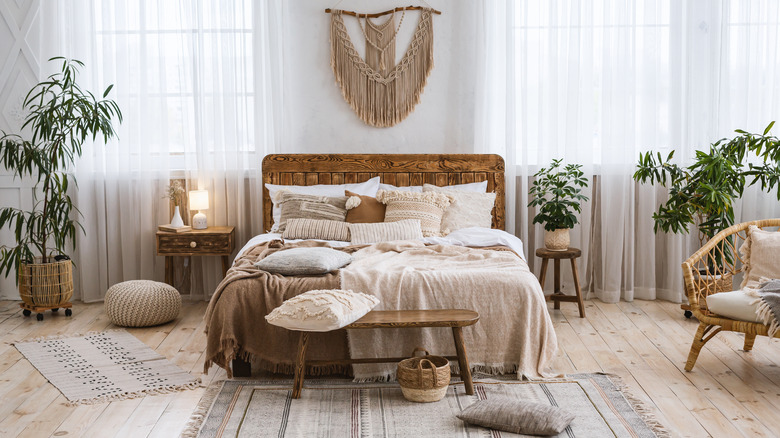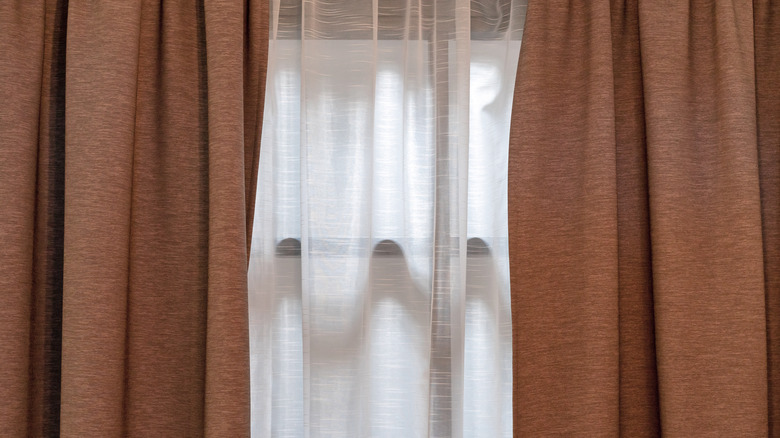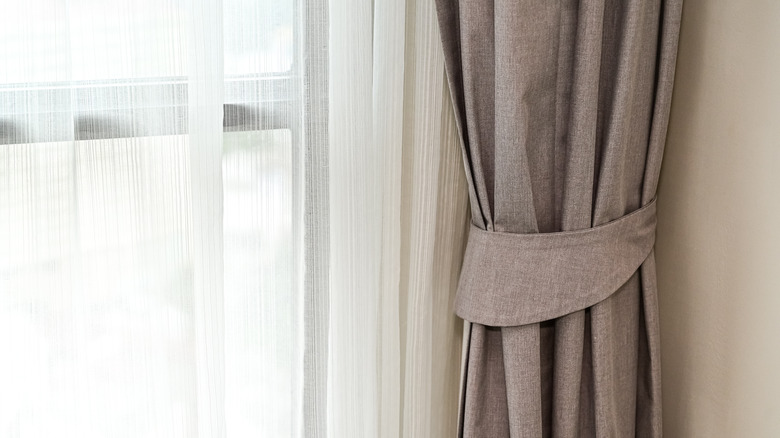Why Your Curtains Might Be Stopping You From Getting A Good Night's Sleep
The aesthetic value of your home is important. Studies show that comforting interiors, heartwarming décor, and spacious rooms can all positively impact mental health (via International Journal of Environmental Research and Public Health), so you may be tempted to opt for those beautiful, thin curtains that you have in the rest of the home in your bedroom. While they may look good and help to bring some light and airiness to the space, many experts agree that they're not the right choice in an area designed for sleep.
Functionality trumps aesthetics when it comes to curtains in the bedroom, so if you're looking for the best sleep possible, you may want to consider trading out those see-through pieces for something a little better at blocking light. Keep reading to learn why a sheer, decorative choice isn't the best idea, and explore what other options are available on the market to help you rest peacefully through the night.
Why are blackout curtains important?
The main point of curtains is to provide privacy and block direct light, but in more public areas of the home, like living rooms and kitchens, you may want to keep some brightness and just diffuse the light, so you're not hit with direct rays throughout the day. That's why sheer curtains are so popular — they add just a bit of cover without darkening the space completely.
In the bedroom, however, darkness is best; according to the Sleep Foundation, it is critical for deep rest at night. This is because our brains run on a cycle of hormones that flows with the natural rise and set of the sun called the circadian rhythm. Darkness sends a cue to our brains to produce melatonin, a hormone related to serotonin that makes us sleepy. If the light is constantly interfering with this cycle, our brain's production of melatonin is disrupted, resulting in a restless night and poor-quality sleep. In addition, dark curtains can help block light from street lamps, the moon, and even the early morning sun, which could interrupt rest.
Other options
Most sheer curtains are made out of materials like polyester, linen, and voile, all very thin fabrics that are great at letting light in while still diffusing it (via Zebra Blinds). In the bedroom, however, it's better to opt for a thicker blackout curtain with a tight weave. This will prevent any light from passing through, allowing you to rest peacefully through the night. If you're still not ready to get rid of the airy look, layering curtains can be another great option. During the day, you can still maintain the breezy, bright look and bring some natural light to your space, but at night, you can close the heavier pieces for better sleep. Win-win.
With the recent push for health and wellness and interior design, it's tempting to prioritize the benefits of natural light in all of our spaces, but the bedroom should be an exception to this rule. Sleep matters for mental health, too, and choosing the right curtains for this space can make getting high-quality rest a breeze.


